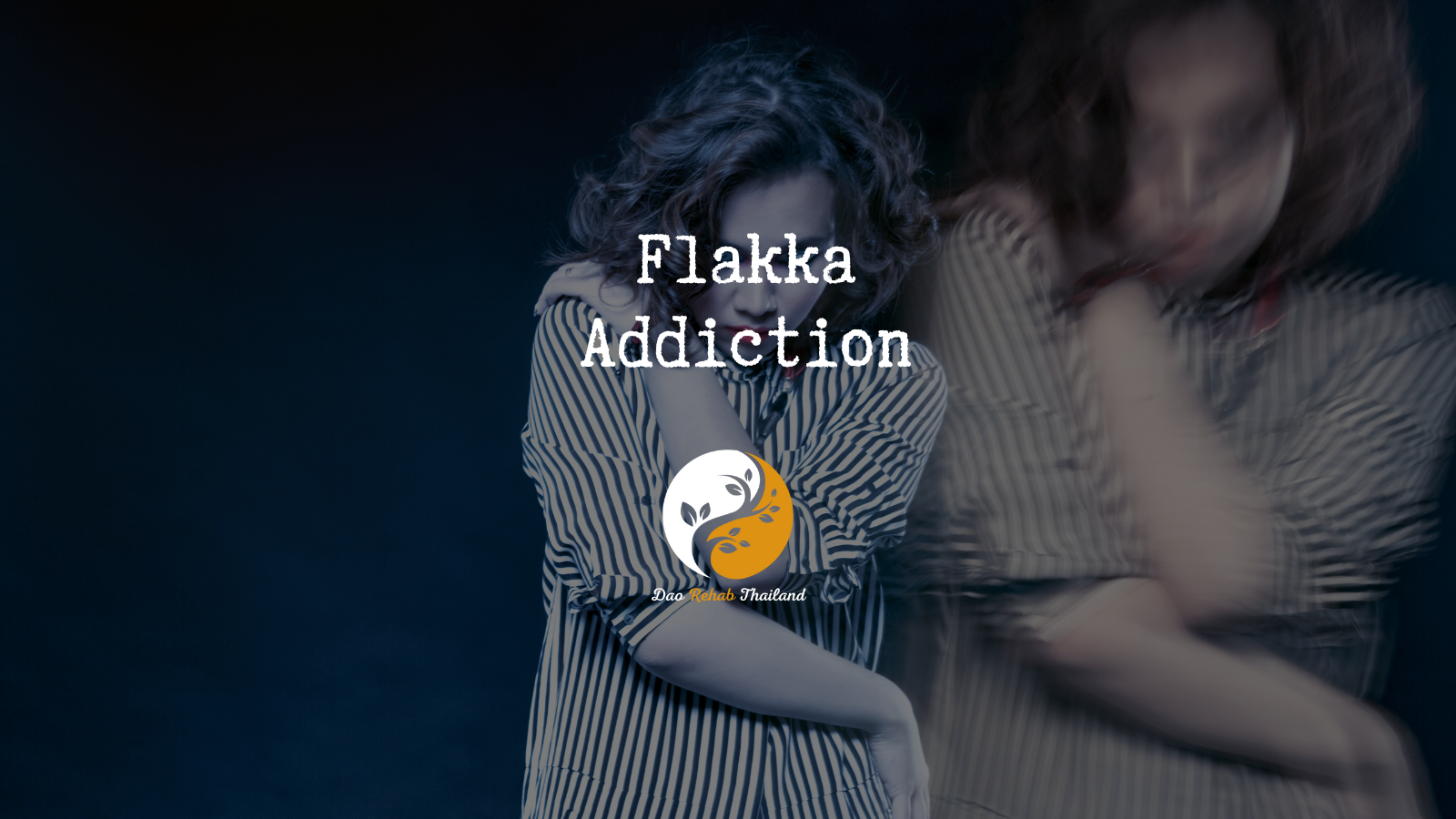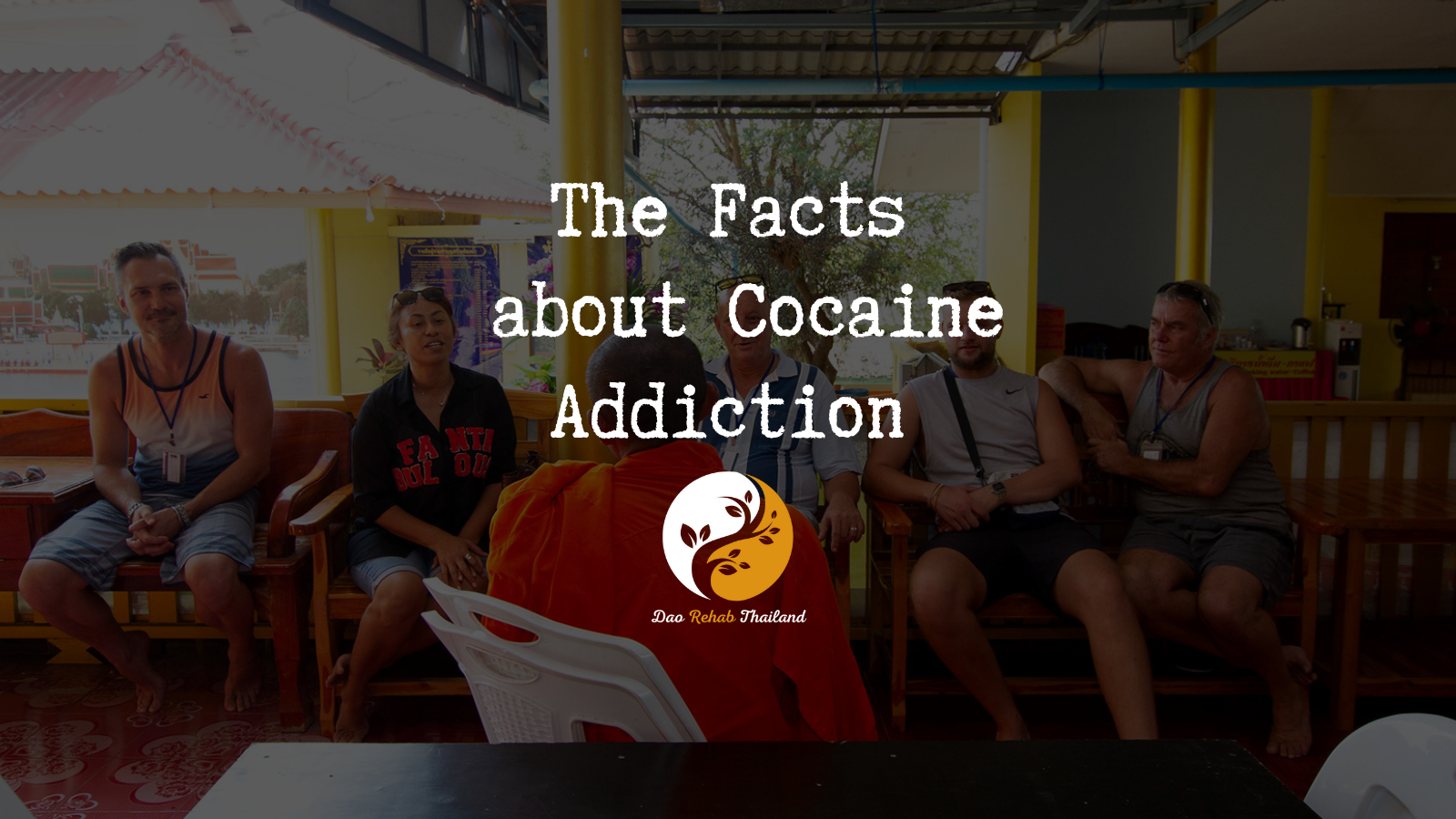
Flakka Addiction detox in Thailand
What is Flakka
“Turning the impossible into possible”

"Detox from Flakka at a Luxury Holistic Center in Thailand and Israel"

What is Flakka: The Drug That Turns People into Zombies
Flakka is a highly dangerous and addictive synthetic drug, also known as “the zombie drug” due to its severe effects on users’ behavior. It belongs to the class of synthetic cathinones, which are synthetic derivatives of the khat plant but act in a much stronger and more harmful way.
Components and Effects: Flakka primarily contains the active ingredient alpha-PVP (α-PVP), a chemical with effects similar to amphetamines and cocaine. The drug stimulates the central nervous system and can lead to hallucinations, aggression, and heightened euphoria.
Why It Is Called “The Zombie Drug”: The nickname “zombie drug” comes from the severe effects on users’ behavior. Under the influence of Flakka, individuals may become highly aggressive, lose self-control, and exhibit psychotic behavior that sometimes results in dangerous or irrational actions. In some cases, users appear to have lost all connection to reality and behave in a zombie-like manner.
"Holistic Center for Trauma, Addiction, and Mental Imbalance Treatment in Thailand"
“Come to the beginning of your journey to freedom from addiction to alcohol, drugs, and pills, and rediscover your life within the serene embrace of DaoTherapy Rehab in Thailand—where holistic healing meets empowering recovery.”
DaoTherapy Holistic Rehab
Key Elements of Flakka Detox:
Medical Supervision: Flakka detox must be conducted under medical supervision, as the body may experience withdrawal symptoms. These can include nausea, anxiety, muscle aches, and insomnia. A medical team will monitor and manage these symptoms to ensure the patient’s safety and comfort.
Holistic Therapies:
Holistic Therapies: Many detox programs incorporate holistic therapies such as mindfulness, yoga, and meditation to help individuals cope with stress and anxiety during the detox process. These therapies support the mind-body connection and contribute to overall recovery.
Tapering Process
Tapering Process: Flakka detox often involves a gradual tapering of the drug to reduce withdrawal severity. Doctors will slowly decrease the dosage over time to allow the body to adjust to lower levels of the substance.
Psychological Support:
Psychological Support: Like any addiction recovery process, detox from Flakka includes psychological support. This can involve counseling, therapy, or support groups to address the mental and emotional aspects of addiction.
Post-Detox Treatment:
Post-Detox Treatment: After completing detox, continuing treatment is crucial to prevent relapse. This often includes participation in ongoing therapy, group support, and the development of new coping strategies to maintain sobriety.
Side Effects and Dangers:
Side Effects and Dangers:
- Hallucinations and Delusions: Users may experience visual and auditory hallucinations and delusional thinking.
- Aggression and Agitation: The drug increases adrenaline levels and can lead to extreme aggression.
- Elevated Body Temperature: High body temperature that results in excessive sweating and a risk of dehydration.
- Organ Failure: Prolonged use can damage internal organs, including the kidneys and heart.
- Death: The severe effects and the risk of overdose can be fatal.
Spread and Use: Flakka became popular mainly in the United States in the early 2010s but has spread to other countries as well. It is often sold at a relatively low price, making it more accessible to the public.
Summary: Flakka is a highly dangerous synthetic drug with severe effects on users’ behavior and health. Known as “the zombie drug,” it can cause hallucinations, aggression, psychotic behavior, and poses a high risk of physical and mental harm and even death. Raising awareness of the drug’s dangers and increasing treatment and support for addicts are critical steps to prevent its deadly effects.

contact us
Contact us with your questions
We would love to speak with you! Feel free to reach out with any questions.

get in touch
Schedule a free consultation
Schedule a free consultation with our team and let’s make things happen!
Historical Background of Flakka:
Historical Background of Flakka:
Flakka, also known as α-PVP (alpha-Pyrrolidinopentiophenone), is a synthetic derivative of cathinone, which originates from the khat plant. Synthetic cathinones were first developed in laboratories in the 1960s as part of efforts to create new medications. Over time, various synthetic cathinones began to appear in the drug market, often sold as legal substitutes for cocaine or amphetamines.
Emergence and Spread:
Flakka became particularly widespread in the early 2010s, especially in countries like the United States, where it was part of a trend of new synthetic drugs that gained popularity due to their availability and low cost. Flakka was often distributed in powder or crystal form and sold under various commercial names. The drug’s reputation as dangerous developed following numerous reports of severe side effects associated with its use.
Factors for Its Popularity:
The popularity of Flakka was due to several reasons:
– Low Price and High Availability: The drug was sold at lower prices compared to drugs like cocaine or heroin.
– Intense Euphoria: The drug provided heightened euphoria and strong feelings of energy.
– Misleading Marketing: Flakka was sometimes sold as a legal or non-dangerous substance, leading uninformed users to believe it was safer than it actually was.
Severe Consequences:
As the use of Flakka spread, more and more cases of extreme and aggressive behavior under its influence emerged, leading to its nickname “the zombie drug.” Reports of people behaving violently, inflicting severe injuries on themselves and others, and even dying from overdoses, made Flakka a significant focus in the conversation about dangerous synthetic drugs.
Regulatory Response:
Due to the obvious dangers associated with using Flakka, health and law enforcement authorities in the United States and worldwide began working to curb its use. New laws and regulations were put in place to restrict the distribution of the drug and ban its components.
Flakka is a synthetic drug that gained popularity in the early 2010s and was nicknamed “the zombie drug” due to its severe effects. The drug’s history shows a trajectory from synthetic medication development, rapid spread due to its low price, and eventual recognition of its extreme dangers that led to regulatory actions aimed at combating its use.
Medical Dangers and Side Effects of Flakka:
Medical Dangers and Side Effects of Flakka:
Flakka is known for its harmful and dangerous effects on users’ health. Here is a detailed overview of the dangers and side effects associated with using the drug:
1. Psychotic Behavior:
– Hallucinations and Delusions: Flakka users may experience severe hallucinations and delusions that cause distorted perceptions of reality.
– Aggression and Agitation: The drug can lead to extreme aggression, self-harm, and violence toward others.
2. Severe Physical Effects:
– High Body Temperature (Hyperthermia): Flakka can cause a sharp increase in body temperature, which can become life-threatening. This extreme fever can result in organ damage and systemic failure.
– Kidney Failure: The drug’s effects on the kidneys can lead to severe renal failure, requiring dialysis or kidney transplant.
– Heart Damage: Flakka use increases the risk of cardiac arrhythmias and heart failure.
3. Neurological Symptoms:
– Restlessness and Extreme Agitation: Users may feel an unusual level of restlessness, with difficulty staying still.
– Seizures: The drug can cause severe seizures that pose life-threatening risks.
4. Addiction and Dependence:
– High Risk of Addiction: Flakka is known to be highly addictive, with users quickly developing physical and psychological dependence.
– Withdrawal Symptoms: Withdrawal from the drug includes severe symptoms such as anxiety, depression, fatigue, and insomnia.
5. Mortality:
– Overdose: Flakka use can result in an overdose, which can be fatal. The combined effects on the central nervous system and other body systems increase the risk of death.
Flakka use is extremely dangerous and includes severe physical and psychological risks. The drug can lead to psychotic behavior, serious physical side effects, addiction, and, in severe cases, death. Raising awareness of the drug’s dangers and increasing support for treatment and prevention are crucial steps to prevent its harmful effects.
Withdrawal Symptoms from Flakka:
Withdrawal Symptoms from Flakka:
Withdrawal from Flakka is a difficult and complex process due to the drug’s powerful effects on the body and mind. The withdrawal symptoms include:
1. Physical Symptoms:
– Extreme Fatigue: Users may experience feelings of tiredness and general weakness.
– Headaches: Severe headaches are a common symptom.
– Muscle and Body Aches: Physical pain in the muscles and throughout the body.
– Excessive Sweating: Excessive sweating as the body tries to rid itself of toxins.
– Sleep Problems: Insomnia or irregular sleep patterns that increase feelings of fatigue.
2. Psychological Symptoms:
– Anxiety: Increased feelings of anxiety accompany the withdrawal process.
– Depression: Deep depression that may lead to suicidal thoughts or low mood.
– Irritability and Restlessness: Difficulty relaxing and extreme restlessness.
– Confusion: Feelings of confusion and lack of concentration may occur during withdrawal.
3. Psychotic Symptoms:
– Hallucinations: In some cases, users may continue to experience hallucinations even after stopping the drug.
– Delusions: Irrational or delusional thoughts may appear.
Duration of Withdrawal Symptoms:
Symptoms can last from a few days to weeks, depending on the length of drug use and the severity of the addiction. In some cases, certain symptoms may persist longer and require prolonged medical and psychological treatment.
Coping with Withdrawal:
Withdrawal from Flakka requires professional support in a therapeutic setting. Medical treatment, psychological support, and the use of medications to alleviate symptoms are important parts of the recovery process. Customized treatment programs can help the patient manage withdrawal symptoms and prevent relapse.
The withdrawal process from Flakka includes physical, psychological, and psychotic symptoms, and requires professional treatment and support to ensure a successful recovery and prevent relapse.
Psychological Support:
Psychological Support: Like any addiction recovery process, detox from Subutex includes psychological support. This can involve counseling, therapy, or support groups to address the mental and emotional aspects of addiction.
Coping with Withdrawal from Flakka:
Coping with Withdrawal from Flakka:
Coping with the withdrawal process from Flakka is complex and challenging due to the drug’s powerful effects on both body and mind. To manage withdrawal effectively, it is important to utilize several supportive measures:
1. Medical Support:
– Hospitalization in a Medical Facility: Withdrawal from Flakka often requires hospitalization or medical supervision to manage severe withdrawal symptoms and ensure the patient’s safety.
– Medication Treatment: Medications can be used to relieve symptoms such as anxiety, depression, and physical pain.
2. Psychological Therapy:
– Individual Therapy: Working one-on-one with a qualified therapist to process the personal reasons that led to drug use and address psychological challenges during withdrawal.
– Cognitive-Behavioral Therapy (CBT): Helps identify negative thought patterns and develop healthier coping strategies.
– Group Therapy: Participation in support groups can help the patient share their feelings and hear experiences from others in similar situations, providing a sense of belonging and support.
3. Social and Family Support:
– Support from Close Environment: Involvement of family and friends can provide essential emotional support to the patient.
– Support Community: Participation in support groups such as 12-step programs can offer ongoing support and help prevent relapse.
4. Healthy Lifestyle:
– Balanced Nutrition: Maintaining a balanced, healthy diet can aid the recovery process and improve overall health.
– Physical Activity: Regular exercise helps reduce stress levels and enhances well-being.
– Sufficient Sleep: Good sleep is an important component of physical and mental recovery.
5. Stress Management Tools:
– Meditation and Breathing Exercises: Techniques for calming the body and mind that can help prevent feelings of anxiety and stress.
– Yoga and Relaxation Exercises: Incorporating relaxing practices may help strengthen both body and mind.
Coping with withdrawal from Flakka requires a holistic approach that includes medical supervision, psychological therapy, and continuous social support. The withdrawal process can be long and challenging, but with persistence and the right support, it is possible to recover and significantly improve quality of life.
Daotherapy is a psychological-spiritual treatment method
“Daotherapy” is a psychological-spiritual treatment method that focuses on balancing the body, mind, and spirit. This method is based on principles of Eastern philosophy as well as modern psychological approaches, aiming to help individuals achieve inner harmony and a more balanced life. Daotherapy seeks to integrate various techniques of self-reflection, meditation, movement, and spiritual exercises to assist patients in coping with personal challenges, improving self-awareness, and fostering spiritual growth.
The method emphasizes the process of **individuation**, in which a person learns to deeply understand themselves and connect the different parts of their personality. Daotherapy views an individual as a unified whole, where there is no separation between the psyche and the spirit, and treatment is conducted holistically, incorporating all these aspects together.
Patients using this method may engage in practices such as yoga, meditation, breathing techniques, and physical activity to strengthen their inner connection and improve their quality of life, alongside psychological support that helps process emotional experiences and promotes personal growth and development.
Psychological Support:
Psychological Support: Like any addiction recovery process, detox from Subutex includes psychological support. This can involve counseling, therapy, or support groups to address the mental and emotional aspects of addiction.








